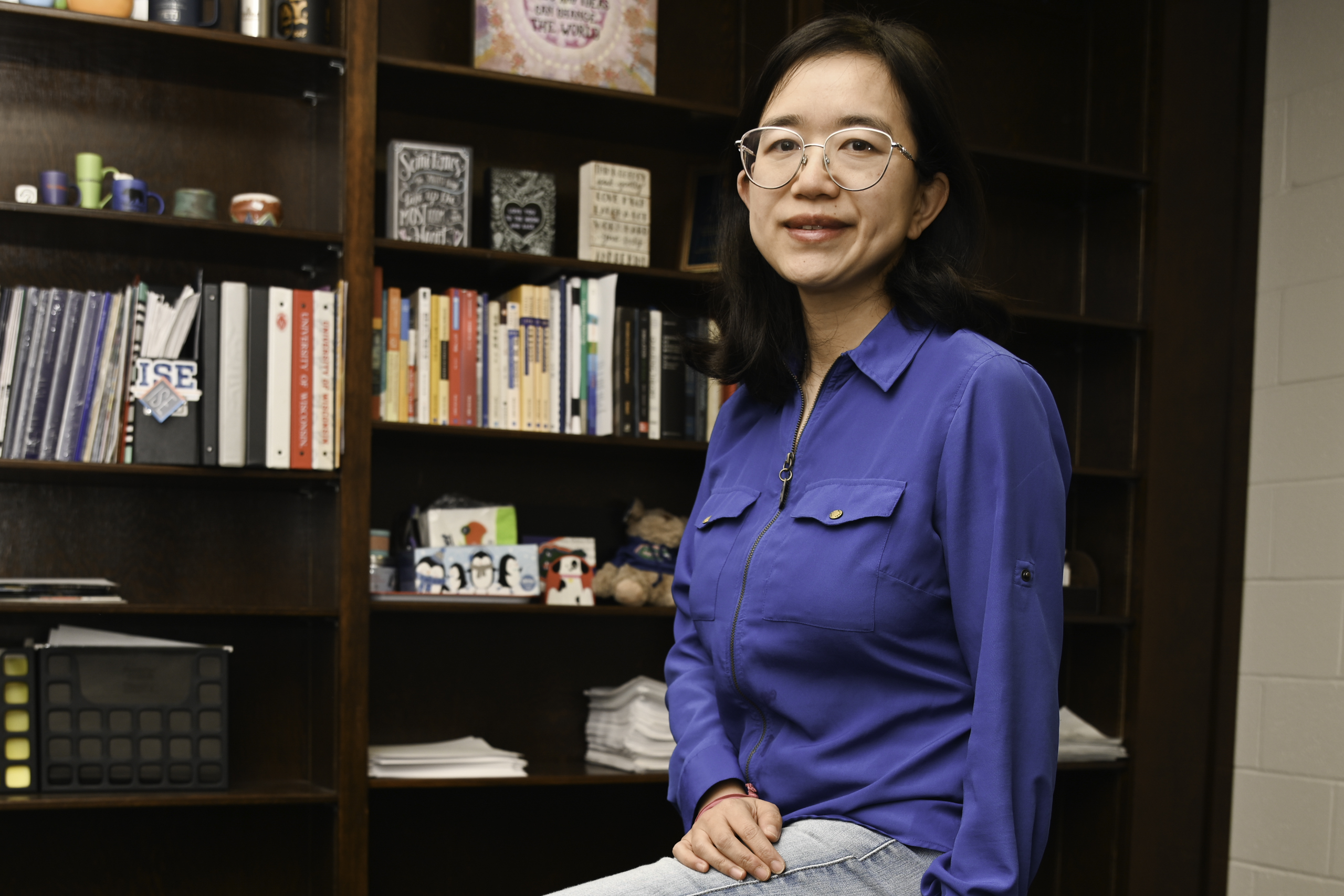Xiang Zhong grew up with her role model.
By David Schlenker
“My mother was an engineering faculty member in a Chinese university,” said Zhong, Ph.D., an associate professor in Industrial and Systems Engineering (ISE) in the Herbert Wertheim College of Engineering. Her mother, Yumei Cui, continues to set an example for her daughter; at age 63, Zhong said, Cui is learning English so she can communicate better with her grandchildren.
“She always encouraged me to study math and engineering,” Zhong recalled, “and she believes that girls are as good as boys in studying STEM.”
No doubt. In fact, Zhong is now a celebrated University of Florida researcher with an eye on using AI modeling and data analytics to improve patient experiences in healthcare. Currently, she is working on two projects funded by the National Science Foundation:
Data-Driven SEIRI Modeling and Hospital Planning and Operations for the COVID-19 Pandemic
A Causal AI Digital Twin Framework to Transform Intensive Care Delivery
Zhong is co-director of the HEALTH-Engine Lab at the University of Florida. Her expertise is in data analytics with applications spanning healthcare, service, and production systems. She has a special interest in automation.
“Automation engineering focuses on creating intelligent systems that can perform tasks automatically, combining elements of engineering, computer science, and information technology,” she said. “I was intrigued by the potential of these technologies and wanted to explore more, so I pursued a Ph.D. in Industrial Engineering at the University of Wisconsin Madison.”
Here is more information on one of ISE’s brightest stars.
Question: Where did you grow up?
Zhong: I grew up in China. I was lucky to attend one of the top universities in China, Tsinghua University, and study Automation for my Bachelor of Science degree.
Question: Why did you choose your career?
Zhong: During my Ph.D. study, we explored how industrial and systems engineering principles can be used to improve the design and operation of care-delivery systems (how to improve patient access to primary care, how to reduce patient wait times in emergency departments). Inspired by the feedback from our clinician collaborators who would like to see more collaboration between physicians and engineers, I decided to become faculty in a research university, advance research in health-systems engineering, train the next generation of engineers, and promote collaboration between researchers in engineering, healthcare operations, and medical science.
Question: How will your research help people?
Zhong: My research aims to advance operations research and systems-engineering approaches to address the operational challenges of healthcare delivery systems in the digital era. Healthcare delivery systems are complex and dynamic socio-technical systems that impose significant challenges to comprehend, manage, and control. Consequently, healthcare systems worldwide have suffered long-standing efficiency and access issues that negatively impact the well-being of human beings and their quality of life.
Healthcare delivery is at the dawn of a foundational change in the new era of smart and connected healthcare, referred to as “healthcare 4.0.” This new vision significantly expands the social and technical capabilities of care delivery; however, this also demands innovative research to understand the impact technology and new business models have brought to the current healthcare system and address the optimal integration and implementation of the emerging technology into the current system to realize its vision.
Question: What has been your most successful research project?
Zhong: The project that I am very enthusiastic about is the project currently funded by NSF’s Smart Health and Biomedical Research in the Era of Artificial Intelligence and Advanced Data Science program. Working with healthcare professionals from the Mayo Clinic Rochester, we aim to advance the digital twin technology with the application to intensive care delivery.
Digital twins integrate artificial intelligence, simulation, and Internet of Things (IoT) technology to create a computational counterpart for a real physical system for system design, monitoring, and life-cycle improvement. Digital twins have revolutionized several industries, such as manufacturing, urban planning, and construction. However, for the digital twin concept to materialize in healthcare, many factors may come into play. The sheer computing power required to run simulations of the human body or even individual organs can be intimidating. Current works mainly focus on a single organ to develop its digital replicas in an experimental setting.
Meanwhile, care delivery exemplifies a complex adaptive system where team-based caregivers communicate and interact with each other internally and with patients throughout their care journey. How to integrate models at the patient level and process level, accounting for the real-time input from IoT devices, is a cutting-edge research area. We have already developed a prototypical patient digital twin iOS application to simulate a patient’s clinical trajectory in the first six hours since their intensive care admission as an educational tool. We are working on integrating patient simulation with ICU system simulation to support ICU operations.
Question: What was your path to UF?
Zhong: After graduating from UW Madison (2016), I joined UF as an assistant professor at ISE. The department was trying to expand its research portfolio to include ISE applications in healthcare at that time, and I, with other new hires in the subsequent year, co-founded the HEALTH-Engine lab. Together, more than 10 Ph.D. students graduated from the HEALTH-Engine lab.
Question: What is your favorite thing about UF?
Zhong: I love the collegial environment of the ISE department and am glad to see its expansion to other important research areas such as human and health systems and manufacturing systems over the years. The department is “young” – we have many junior and mid-career members – and the vibe is great.
The UF campus is beautiful. I was very impressed by the beautiful live oak trees decorated by the Spanish moss, unique to a southern climate.
Question: What do you like to do when not teaching or researching?
Zhong: Birding. I go to Sweetwater Wetlands Park or La Chua Trail and enjoy the serenity, and shoot photos of great herons and egrets fishing and snail kites catching apple snails.

